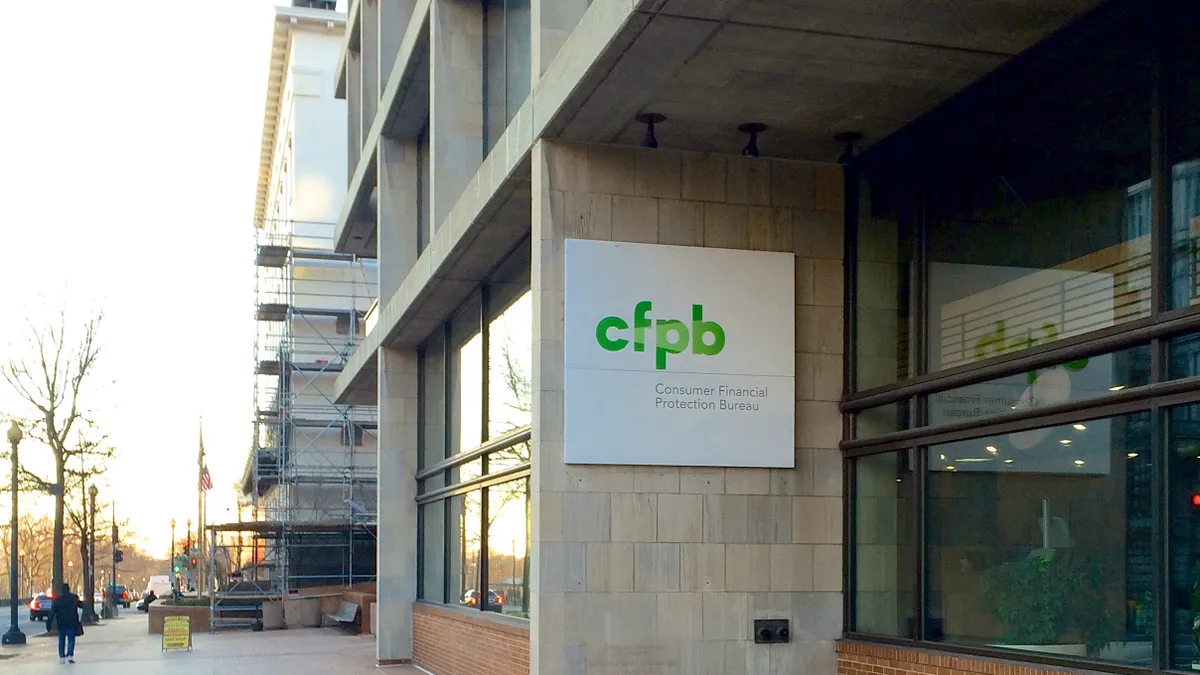A Texas federal judge ruled Monday that not all lenders need to obey a Consumer Financial Protection Bureau mandate requiring them to report data on small-business lending to fight unlawful discrimination while the U.S. Supreme Court weighs in on the constitutionality of the agency's funding, according to Bloomberg Law.
Judge Randy Crane of the U.S. District Court for the Southern District of Texas granted a preliminary injunction filed by the Texas Bankers Association, American Bankers Association, and McAllen, Texas-based Rio Bank, saying the plaintiffs and their members are exempt from implementing the CFPB small-business lending rule till a final decision on the funding is reached.
"We believe the injunction is a recognition of the complexity of the 1071 Final Rule and the significant costs and burdens it places on our members, particularly community banks which provide much of the country's small business lending," the plaintiffs said in a statement Monday.
"TBA, Rio Bank, and ABA are pleased with this immediate victory, but we remain committed to our larger case challenging the lawfulness and scope of CFPB's over-reaching 1071 Final Rule that will only harm lending to small businesses and minority and women-owned enterprises. We look forward to the next steps in this case," the statement noted.
The injunction is valid only for TBA's 400 members, including Rio Bank and ABA's members across the country. The judge denied the plaintiffs' injunction request for nationwide injunctive relief.
The ABA comprises small, regional, and large banks that safeguard $18.7 trillion in deposits and extend $12.2 trillion in loans, according to the Monday statement.
Rio Bank and TBA sued the CFPB in April, alleging the agency's rule requiring lenders to capture details about lending decisions, geographic information of the borrowers, and demographic data would eliminate small lenders from the market.
"Rather than advancing the goal of growing the number of loans made to minority and women-owned businesses, though, the CFPB has now issued a rule that will hinder that aim," the plaintiffs claimed at the time.
The CFPB announced a final rule in March, mandated under the Dodd-Frank Act, covering banks and lenders that issue at least 100 small-business loans each year. Lenders that originate at least 100 loans annually should start collecting data on Jan.1, 2026, the bureau said.
The CFPB announced the final rule to provide the public with key data on the small-business lending market and to ensure that lenders are serving small businesses fairly.
The plaintiffs also argued that the 5th U.S. Circuit Court of Appeals' ruling in October questions the bureau's authority and asked the judge to suspend the rule.
The New Orleans-based 5th Circuit Court of Appeals ruled the CFPB's funding structure unconstitutional as it violates the separation-of-powers principles in the U.S. Constitution. The bureau receives its funding from the Federal Reserve and not from Congress.
But in March, the U.S. Court of Appeals for the Second Circuit ruled the agency's funding structure is constitutional.
Meanwhile, the Supreme Court has agreed to hear arguments on the case, and a final decision is unlikely until 2024 when the hearing will start at the beginning of the next term.














